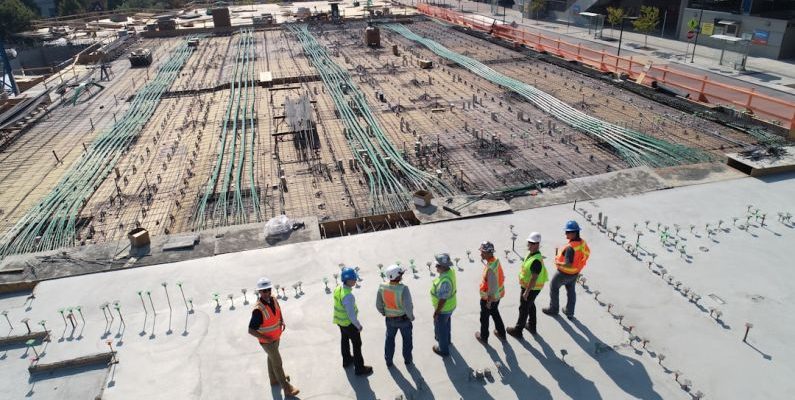In recent years, the use of industrial drones in construction has become increasingly prevalent, revolutionizing the way projects are planned, monitored, and executed. These drones, equipped with advanced technology, have proven to be invaluable tools in the construction industry, offering a wide range of benefits that enhance efficiency, safety, and overall project outcomes.
Improved Site Surveys and Mapping
Industrial drones play a crucial role in conducting site surveys and mapping, providing construction companies with accurate and up-to-date data on the project area. By capturing high-resolution aerial images and generating detailed 3D models, drones enable project managers to gain a comprehensive understanding of the site, identify potential challenges, and make informed decisions. This data can be used for site planning, progress tracking, and resource allocation, leading to more efficient project management.
Enhanced Safety and Risk Management
One of the key advantages of using industrial drones in construction is the improvement in safety and risk management. Drones can be deployed to inspect hard-to-reach or hazardous areas of a construction site, reducing the need for workers to perform dangerous tasks. By conducting aerial inspections, drones help identify safety hazards, monitor compliance with safety regulations, and prevent accidents before they occur. This proactive approach to safety not only protects workers but also minimizes project delays and liabilities.
Efficient Progress Monitoring
Industrial drones enable real-time monitoring of construction progress, providing project managers with valuable insights into the status of the project. By capturing aerial footage and images, drones allow stakeholders to track construction activities, assess productivity, and identify potential bottlenecks. This continuous monitoring helps ensure that the project stays on schedule and within budget, facilitating timely decision-making and adjustments to optimize project outcomes.
Cost-Effective Asset Management
The use of industrial drones in construction can lead to significant cost savings by improving asset management practices. Drones can be used to conduct regular inspections of equipment, structures, and infrastructure, detecting maintenance issues early on and preventing costly repairs or replacements. By implementing a proactive maintenance strategy based on drone data, construction companies can extend the lifespan of their assets, reduce downtime, and optimize operational efficiency.
Empowering Sustainable Practices
Industrial drones are also valuable tools for promoting sustainability in construction projects. By capturing data on environmental impact, resource usage, and compliance with sustainability standards, drones enable companies to monitor and improve their sustainability practices. This data can be used to minimize waste, reduce carbon footprint, and enhance overall environmental performance, aligning construction projects with green building principles and regulatory requirements.
In conclusion, the uses of industrial drones in construction are diverse and impactful, offering numerous benefits that enhance project efficiency, safety, and sustainability. By leveraging drone technology for site surveys, safety inspections, progress monitoring, asset management, and sustainability practices, construction companies can streamline operations, mitigate risks, and achieve better project outcomes. As the technology continues to advance, industrial drones are poised to play an increasingly vital role in shaping the future of the construction industry.

